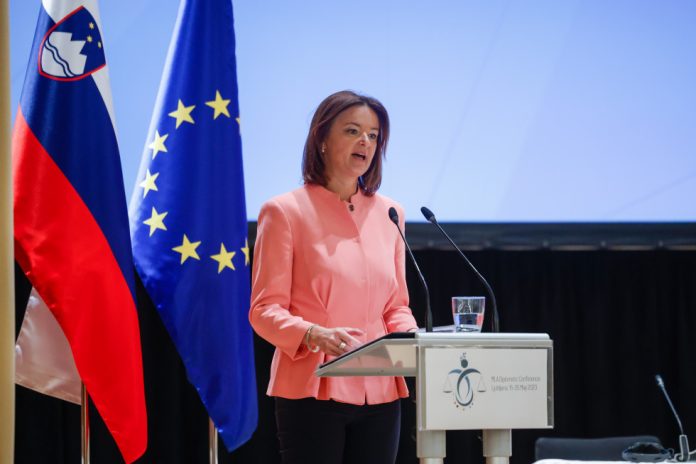After more than a decade of efforts by Slovenia, Argentina, Belgium, Mongolia, the Netherlands and Senegal, an international diplomatic conference has opened in Ljubljana to adopt the text of a convention on international cooperation in the investigation and prosecution of the most serious crimes. The Conference will run until 26 May. Upon adoption, the convention will be called the Ljubljana-Hague Convention.
The purpose of the diplomatic conference is to conduct negotiations for the adoption of the Convention on International Cooperation in the Investigation and Prosecution of Genocide, Crimes against Humanity, War Crimes and Other International Crimes (MLA Convention). Slovenia has been part of this initiative for more than 12 years. The aim of the initiative is to fill the gaps in the field of international legal assistance and extradition in the context of national proceedings against alleged perpetrators of the most serious international crimes since, contrary to other criminal offences, no form of cooperation has yet been established in the international community in this field. To this end, legal experts will negotiate the adoption of the text of the MLA Convention, which will make it easier for countries to cooperate in the investigation and prosecution of the most serious crimes.
In her opening address, Minister of Foreign and European Affairs Tanja Fajon said she was pleased that Slovenia was hosting the largest diplomatic conference on international law in its history, and that the high level of participation by supporters of the Convention – with representatives from 71 countries and a total of 80 supporting States – was a reflection of our shared commitment to ensuring accountability and ending impunity for the most serious crimes. “I sincerely hope that the Conference will be a decisive step forward in strengthening the political will and capacity of States to investigate and prosecute the most serious international crimes. It is the primary obligation of States to ensure this”, stressed Minister Fajon.
Speaking at the press conference, Minister Fajon also said that Slovenia was proud to host such an important international event and that the MLA initiative underlines the primary responsibility of States in the prosecution of international crimes and aims to increase the effectiveness of investigations and prosecutions at the national level.
“The adoption of this Convention is intended to finally fill the legal gaps in the field of international mutual assistance between States.”
In her address, Minister of Justice Dr Dominika Švarc Pipan stressed that impunity for international crimes remains a very serious threat to the rule of law as a key element of democratic societies, and that it also increases the risk of further violence and undermines our efforts to protect and preserve human life, dignity and fundamental rights. “It is our duty to bring perpetrators to justice and to deliver justice for the victims”, underlined Minister Švarc Pipan. She pointed out that any criminal proceedings must also ensure the full and effective protection of the children involved.
After the opening speeches by the hosts of the conference, Minister Fajon and Minister Švarc Pipan, the conference was addressed by the representatives of the core group countries of the MLA Convention, by Minister of Foreign Affairs of Belgium Hadja Lahbib, Minister of Foreign Affairs of Mongolia Battsetseg Batmunkh, Minister of Justice and Security of the Netherlands Dilan Yeşilgöz-Zegerius, State Secretary of the Ministry of Foreign Affairs of Argentina, Ambassador Pablo Anselmo Tettamanti and Ambassador of Senegal to the Kingdom of the Netherlands, Momar Gueye. The conference was also addressed by Judge Kimberly Prost, Judge of the International Criminal Court, Mr Mbacké Fall, Attorney General of the Supreme Court of Senegal, and Dr Priya Pillai, Head of the Asia Justice Coalition secretariat, as Guests of Honour.
The two-week conference, chaired by Ms Sylvia Fernández de Gurmendi, former International Criminal Court judge, will bring together around 300 experts in international law and international criminal law from the countries supporting the initiative for the adoption of the MLA Convention and from other UN Member States and observers, and representatives of international organisations and civil society organisations.

